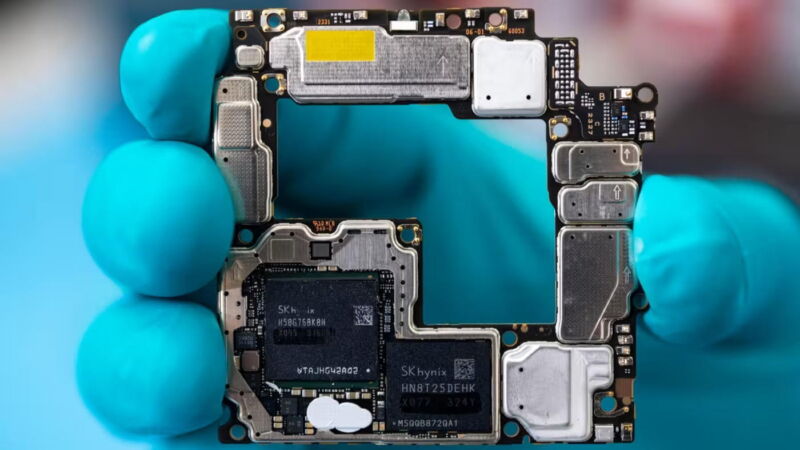

China close to shipping 5 nm chips, despite Western curbs
source link: https://arstechnica.com/gadgets/2024/02/china-close-to-shipping-5nm-chips-despite-western-curbs/
Go to the source link to view the article. You can view the picture content, updated content and better typesetting reading experience. If the link is broken, please click the button below to view the snapshot at that time.

Making do —
China close to shipping 5 nm chips, despite Western curbs
SMIC is facing lower yields as it makes 5 nm chips for Huawei smartphones.
Qianer Liu, Financial Times - 2/6/2024, 2:03 PM

China’s national chip champions expect to make next-generation smartphone processors as early as this year, despite US efforts to restrict their development of advanced technologies.
The country’s biggest chipmaker, SMIC, has put together new semiconductor production lines in Shanghai, according to two people familiar with the move, to mass-produce the chips designed by technology giant Huawei.
That plan supports Beijing’s goals of chip self-sufficiency, with President Joe Biden’s administration tightening export restrictions for advanced chipmaking equipment in October, citing national security concerns. The US has also been working with the Netherlands and Japan to block China’s access to the latest chip tools, such as machines from the Dutch maker ASML.
According to two people with knowledge of the plans, SMIC is aiming to use its existing stock of US and Dutch-made equipment to produce more-miniaturized 5-nanometer chips. The production line will make Kirin chips designed by Huawei’s HiSilicon unit and destined for new versions of its premium smartphones.
While 5 nm chips remain a generation behind the current cutting-edge 3 nm ones, the move would show China’s semiconductor industry is still making gradual progress, despite US export controls.
“With the new 5 nm node, Huawei is well on track to upgrade its new flagship handset and data center chips,” said one person familiar with the plans.
Huawei had surprised the industry and analysts with its advances when its Mate 60 Pro premium smartphone launched in August featuring a 7 nm processor. The phone helped it to increase shipments in China by nearly 50 percent in the fourth quarter, according to Canalys research, as it proved a big hit with consumers.
AdvertisementIf production is judged successful enough for smartphones, Huawei’s most powerful artificial intelligence processor, the Ascend 920, will also be produced at 5 nm by SMIC, the two people said, narrowing the gap between China’s alternative AI chips and Nvidia’s highly sought-after graphics processing units.
Meanwhile, SMIC has increased its current 7 nm production capacity to make more Kirin chips and AI GPUs, said two people familiar with the matter.
Huawei’s 7 nm Ascend 910b chip is considered by analysts and industry experts to be among the most promising alternatives to Nvidia’s market-leading AI processors.
The move to create more advanced chips has incurred additional costs, however. Three people close to Chinese chip companies said that SMIC was having to charge 40 to 50 percent more for products from its 5 nm and 7 nm fabrication nodes than Taiwan’s TSMC does at the same nodes.
However, SMIC’s yield—the number of chips considered good enough to ship to customers—is also less than one-third of TSMC’s.
“Could this be just a demonstration by Huawei and SMIC to show the Chinese government it can be done?” said Douglas Fuller, an expert on China’s semiconductor industry. “If money is no object, then it might happen.”
Huawei declined to comment. SMIC did not respond to a request for comment.
The 7nm and 5nm chip fabrication lines comprise US machines stockpiled by SMIC before it was hit by the restrictions. Its fab also boasts ASML lithography machines shipped last year.
The Dutch government recently revoked an export license for some of the most advanced machines, which has blocked ASML from selling to China.
“SMIC is facing a more significant roadblock for production expansion after the US and its alliance tightened export restrictions on advanced chipmaking gear,” said one person close to the company.
“Still, the fate of China’s chip industry and its technological development in the coming years will depend on these production lines by SMIC.”
© 2024 The Financial Times Ltd. All rights reserved. Not to be redistributed, copied, or modified in any way.
Recommend
About Joyk
Aggregate valuable and interesting links.
Joyk means Joy of geeK